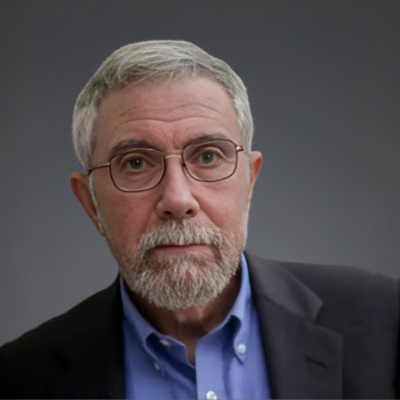
Paul Krugman
An economist and Nobel laureate, he is distinguished by his clarity in explaining complex phenomena. His critical eye inspires reflection on the global economy and its impact on society, combining scientific rigor with social commitment.
Biography / Speaker Info
Paul Krugman is an influential American economist, professor, author and columnist, recognized worldwide for his seminal contributions to international economics and for his influential work in the field of opinion journalism. His career is a clear example of a career that combines the most demanding academic rigor with an outstanding ability to communicate complex ideas to the general public in an accessible and understandable way. With a writing and speaking style that is at once clear, incisive and forceful, Krugman has positioned himself as one of the most important voices in the global economic and political debate, both in the academic and popular spheres.
His career in academia was consolidated at the prestigious Princeton University and later at the City University of New York. In 2008, he was awarded the Nobel Prize in Economics for his groundbreaking analysis of trade patterns and the location of economic activity, in particular for his work on the "new theory of international trade" and the "new economic geography." His research revolutionized the way economists think about trade, globalization and the processes of concentration of economic activity in certain regions.
In addition to his work in academia, Paul Krugman has had a prolific and distinguished career as a columnist for The New York Times, where he has written about the most important economic and political issues in the United States and the world. His columns, published twice a week, are known for their wit, his criticism of government economic policy and his defense of Keynesian economics. His work in journalism has been instrumental in popularizing economics and fostering a more informed public debate and awareness of the complexities of the economic system.
Krugman is a prolific author and his books have become essential guides for those seeking to understand economics in a clear way. In The Age of Diminished Expectations, he explores the causes of the 2008 financial crisis and offers insight into how a bleak future could be avoided.










